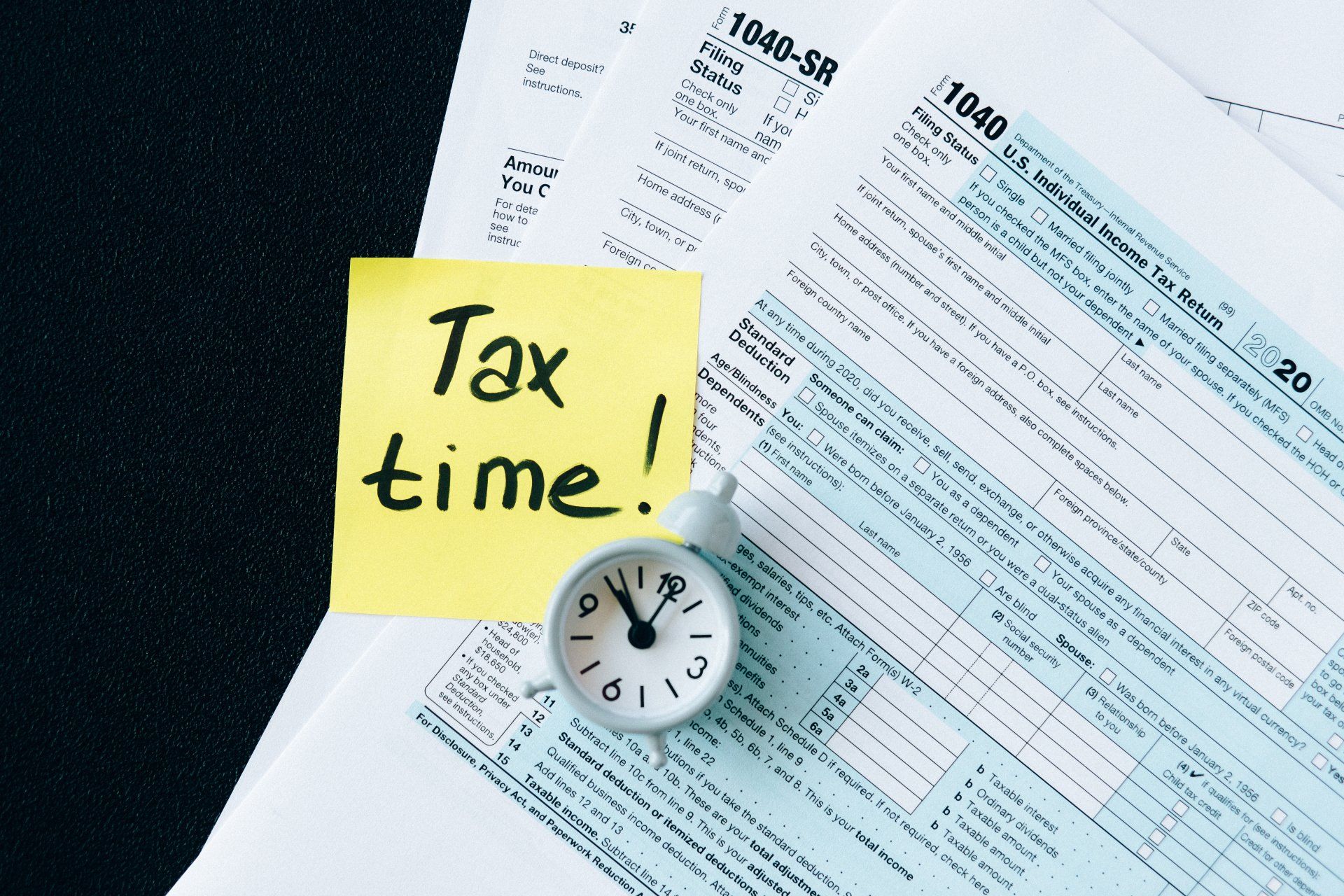Sole Trade or Limited Company? The Age-Old Question
Tax Simplified 4 You | 23 November 2020
A very common question we get is whether it would be best to run the business as a sole trader or start a limited company. There are several issues an individual should consider before making the right decision.
All rates and thresholds mentioned below are for the 2020/21 tax year.
Trading as a Sole Trader
For self-employed individuals or sole traders, all profits are taxable in the year they are earned, in addition to any other sources of income. There is no flexibility for deferring some of those profits to another year if they happen to have a particularly good year and are taxed at the higher rate.
A sole trader will pay income tax on profits at 20% on annual earnings above the personal allowance of £12,500 up to £50,000, 40% on annual earnings from £50,001 to £150,000 and 45% on annual earnings above £150,000.
Class 4 National Insurance at 9% is paid on profits between £9,501 and £50,000 and 2% on profits over £50,000.
Class 2 National Insurance is also payable at £3.05 per week.
The trading profits of a sole trade are reported on a Self-Assessment Tax Return.
Payments on account are advance payments towards the tax liability, including Class 4 National Insurance, for sole traders.
Two payments on account are made every year unless:
1.The sole trader’s last Self Assessment tax bill was less than £1,000 or
2.The sole trader has already paid more than 80% of all the tax they owe, for example through their tax code or because their bank has already deducted interest on their savings
Each payment is half of the previous year’s tax bill. Payments are usually due by midnight on 31 January and 31 July.
For example, if in the tax year 2020/21 a sole trader’s tax liability was £3,000, two payments on account of £1,500 will be due in addition to the £3,000 tax liability, payable in January 2022 and July 2022. These 2 payments of £1,500 will go towards their 2022/23 tax liability.
No payments on account are due in your first tax year of trade.
Trading as a Ltd Company
Limited Companies are taxed on their trading profits, in addition to other sources of income such as interest and rent.
Corporation tax at 19% is assessed on the profits for the year but there is flexibility on when income is taken out of the company. This means that some profits can be retained in the company if the owner would otherwise be likely to pay higher rate tax personally.
The income is usually largely distributed as dividends on which no National Insurance Contributions are charged. And the dividend rate is considerably lower for basic rate taxpayers.
After taking into account the personal allowance of £12,500, the first £2,000 of dividend income is tax free. Dividend income between £14,501 and £50,000 is taxed at 7.5%, dividend income between £50,001 to £150,000 is taxed at 32.5% and anything above £150,000, is taxed 38.1%.
Dividends can only be drawn from the Limited Company subject to the company having sufficient distributable reserves, after taking into account any liabilities such as corporation tax or creditors for example.
When running a limited company, the optimal remuneration structure is to receive the majority as a dividend.
The owner, who will also be the director in most cases, is paid a salary of £9,500 per annum. This is the Primary Threshold for National Insurance purposes at which no Employers or Employees National Insurance is payable.
The payment of £9,500 will still count as a qualifying year for state pension purposes, even though no National Insurance is paid, because the payment is above the Lower Earnings Limit of £6,240.
This salary is a deductible expense for Corporation Tax purposes.
The balance is paid as a dividend, taxed at the lower rates that apply to dividend income mentioned above.
However, dividends are taken out of after-tax profits and are not tax deductible for the company.
Losses
Under a Sole Trade, losses can be utilised to offset against the Sole Traders total income including employment income and capital gains in the same or previous tax year (subject to certain restrictions) and potentially get a tax rebate.
Alternatively, they can be carried forward and offset against future trading profits of the same trade.
If a sole trader is in their first 4 tax years of trade, losses can also be carried back and offset against total income (subject to restrictions) of the previous three tax years prior to the year of loss on a First In First Out basis.
As a limited company, any trading losses you make will be offset against the company's current year total income, carried back or carried forward to be offset against total company profits. However, the maximum available for offset on brought forward losses is subject to restrictions.
Why Should a Sole Trader Incorporate?
There are several reasons for forming a limited company:
In some sectors (such as IT), it is hard to obtain contracts unless an individual trades through a limited company. There is not always an obvious reason for this; it is just the way things are.
If ordering large stock for an order which could be cancelled, then there can be a real benefit in the limited liability offered by trading as a company. The owner’s own personal possessions are generally protected from any claim against the company. However, in some circumstances, taking out a good insurance policy can resolve this issue.
There is more flexibility in handling the owner’s remuneration in such a way as to minimise the tax liability and using different classes of shares makes the tax position potentially even more favourable.
If the owner requires external investment, then a company provides the structure to separate investors (shareholders) from directors and employees.
What are the Disadvantages?
Accountancy costs will increase if running a company, so sufficient savings to justify the cost are necessary.
The company will be regulated by Companies House, which has strict rules for reporting trading accounts, hence the increased costs, and for the conduct of directors and other company officials.
Can a Sole Trader Change from Self Employment to A Limited Company?
Yes. An individual can start as a sole trader and later incorporate. In fact, this is a common route when a new business is unsure of how large it will grow and whether the saving will outweigh the costs.
If you’re thinking of whether you should run your business as a sole trader, or a limited company then get in touch here to see if we can help you.









